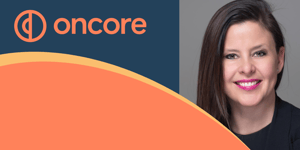Kimberley Britt is the sole owner and founder of Ardor People, an executive search agency focused on the business transformation sector.
Kimberley has worked in contract recruitment since 2007 in the UK and across Europe before finally settling in Australia in 2012, where she was responsible for leading two successful contract recruitment agencies with contract books of over 200 people. Kimberley then decided to set up her own company, Ardor People, 3 years ago. Her niche service is focused on finding specialist resources to effect corporate transformations encompassing people, process and technology.
Kimberley shares her own personal experience running a contract book and shares some advice to consider when building or growing your agency as a new business owner.
You have come from a large agency background before stepping out on your own. What inspired you to start your own agency, and why was a contract book part of that decision?
Taking the step to leave a comfortable job earning a good salary was a difficult one but I felt that I had built up enough knowledge to make the shift after running a large contract recruitment business. I knew that building a contract book was key to being able to build a passive and ongoing income, enabling me to continue to grow the business through building on that book and also incorporating permanent hires as well.
The nature of my area of specialism lends itself to contract work. Generally, transformation projects have a beginning and an endpoint and specialist skills are usually required to get from A to B. Once you arrive at the endpoint, the specialist skill may not be required anymore so companies tend to utilise contractors in conjunction with their BAU teams to deliver the outcome.
What practical steps did you take to start your agency on the right foot and ensure you are compliant?
The compliance component of contract recruitment can be a minefield. For me, I have found that employing good partners with the right expertise is imperative. It helps to have a good understanding of what good looks like before you choose your partner. I use Oncore for payroll compliance and have a good employment lawyer for employment contractual advice ensuring that my company is always doing the right thing and is also protected in the long term.
I also think that having robust processes in place is absolutely necessary to running a successful contracting business. There are so many boxes to be ticked and you need to be constantly on top of everything.
What issues did you face in your first 2 years of business?
Starting any new business requires hard work and dedication. In my first 18 months, I worked very long hours, weekends, evenings. I set goals for myself to achieve in my first year and I was determined to reach them and didn’t mind what I had to do to get there. Mistakes were made but I very quickly learnt from those mistakes and adapted my business accordingly.
How important is it to understand cash-flow management and the true cost of running an agency?
It’s so important to know your numbers. Understanding your P & L, Balance Sheet and cash flow statement is incredibly important. It’s easy to see a lot of cash coming in and think that there is plenty to go around but with so many statutory expenses, tax and insurances, you need to ensure that you really understand your cash flow and what you are spending your money on. I have an accountant who I trust implicitly and a bookkeeper who has been working with contract recruitment companies for many years. I would highly recommend to anyone starting out that getting the best accounting and legal advice possible is the best thing you can do when starting a contract recruitment business.
How did you win your clients, and how did you keep them during this pandemic?
Relationships are key!! When I started my company, I had a few clients that supported me and were prepared to work with me exclusively. I had developed those relationships over many years spent in agency recruitment. Even to this day, I make sure that the service I give them is exceptional and so they have all stuck by me. They know that when they work with me, they can trust that I will deliver a good result and we really work in partnership together.
I think it is also important to only take on what you can deliver on. I am careful about doing too much business development as I don’t want to jeopardise being able to deliver to the existing clients that I have. It is very easy in recruitment to say yes to everything but I think it is really important to spend your time wisely and in the areas where you are guaranteed to make money.
“It is very easy in recruitment to say yes to everything but I think it is really important to spend your time wisely and in the areas where you are guaranteed to make money.”
What leads to more success? Being client lead or candidate lead in this ‘short term, contract’ market?
Sometimes, I think I am more client-led. I spend my time building solid relationships with my clients and the work flows from there. However, I always ensure that I am constantly developing my candidate network as well. In my space, your candidates often become your clients and vice versa so I think it is important to manage both equally.
As agency founders, you can get caught up in doing everything yourself. How has technology and your use of vendors helped you to focus on growing your agency?
I know my strengths and try to focus on doing the things that I am good at. I outsource most other things. Good partners like Accountants, Bookkeepers, Lawyers are important. I use Oncore for payroll compliance and utilise their timesheet system. JobAdder is probably one of the easiest and most useful pieces of recruitment software I have seen in the market – works extremely well for me. I also use Xero for accounting software. All of these things enable me to spend more time with my clients and candidates and doing what I do best – recruitment!
As the founder of the business, how do you decide your first hire and why?
Despite hiring many contractors and consultants to work for my clients, I haven’t yet hired anyone to work for me directly. My business model has afforded me the time to work flexibly and also be around for my family. I wouldn’t say it’s a lifestyle business because I still work hard to maintain what I have, but I do it on my terms. I’d like to hire one or two salespeople to do what I do to help me to grow the business, that is my intention over the next 12 months or so.
Always run your agency like you are planning to sell it – what does that mean?
I definitely had an exit plan when I started my business. I.e. growing to a certain number or contractors and salespeople so that I would have a business to sell when I was ready to. That is still my plan however my timeline might have shifted slightly. I have made sure that I have robust processes in place, solid accounting and a good blue-chip client base, which are all important when the time comes to sell.
What are your predictions for the rest of 2021? How can agencies succeed after the angst of 2020?
I have already noticed a shift in the market for 2021. My clients are moving into building strategies around adapting to the changes that the world has had to endure due to the pandemic, whether that be cost-cutting, re-organising, becoming more digital, improving processes etc. Being on the front foot with your clients has never been more important. Making sure that you understand the changes that they are facing and offering support where it is possible to do so. Making sure that you are front of mind when they are ready to hire.












_11zon%20(1).jpg?width=302&height=124&name=linkedin-sales-solutions-vqWWOnA6--M-unsplash%20(2)_11zon%20(1).jpg)






